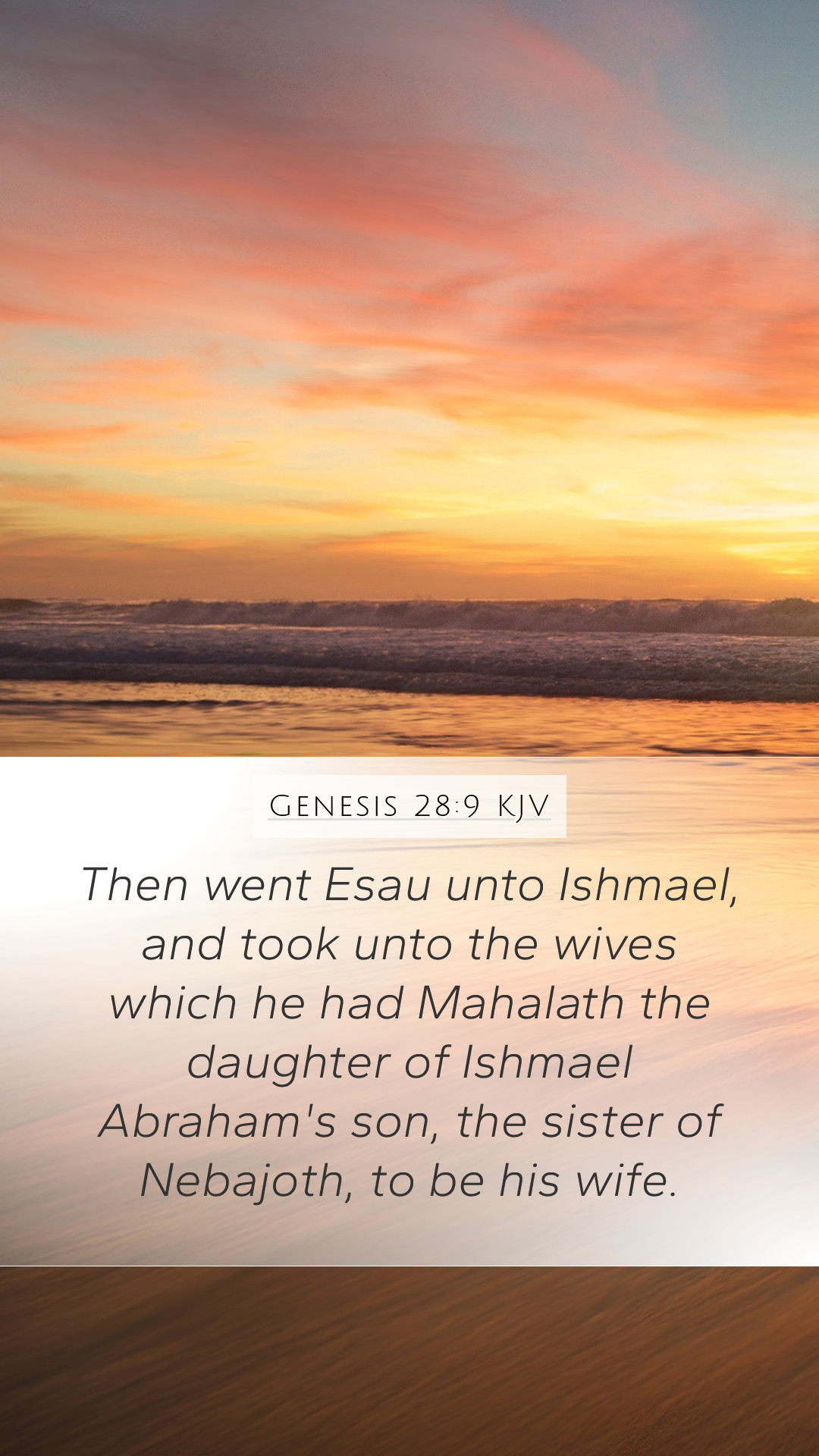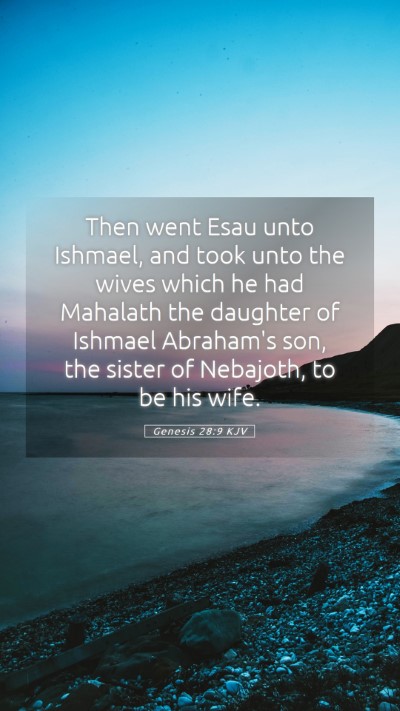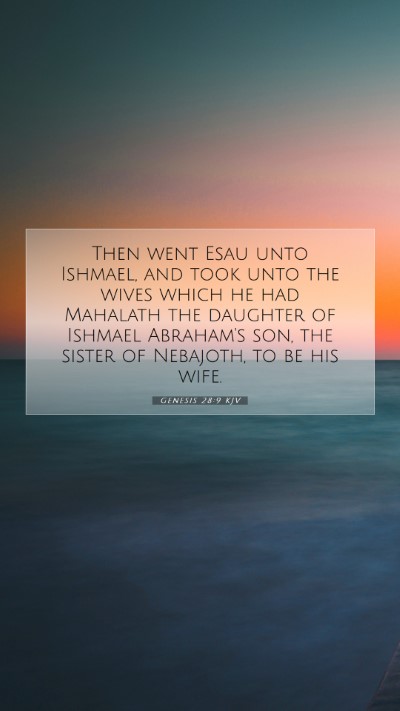Bible Verse Meaning: Genesis 28:9
Genesis 28:9 states: "And Esau went unto Ishmael, and took unto the wives which he had: Mahalath the daughter of Ishmael Abraham's son, the sister of Nebajoth, to be his wife."
This verse occurs in a critical narrative within the Book of Genesis, detailing familial relationships and the subsequent actions of Esau following the events of Jacob receiving the blessing. Let's explore the meanings, interpretations, and significance of this passage through insights provided by renowned public domain commentaries.
Overview
Genesis 28:9 provides insight into Esau's choices, reflecting both his character and the ongoing conflicts between the children of Isaac. This act of marrying a daughter of Ishmael signifies a deviation from the covenant line and further intertwines the descendants of Abraham's family.
Insights from Commentaries
Matthew Henry's Commentary
Matthew Henry discusses the implications of Esau's decision to marry Mahalath, a daughter of Ishmael. He interprets this act as indicative of Esau's disregard for the covenant with God, which Abraham had upheld. Henry highlights that Esau's marriages were not aligned with the expectations set for the covenant family, which primarily involved marrying within the lineage of promise. This choice demonstrates a significant spiritual decline and reflects a heart that has turned away from God’s ordinances.
Albert Barnes' Notes on the Bible
Albert Barnes provides a deeper analysis regarding the cultural and spiritual ramifications of Esau’s marriage. He notes that by taking a wife from Ishmael's lineage, Esau establishes a connection with the descendants of Hagar, suggesting a perpetual strife between these families. Barnes emphasizes that this act was likely to provoke greater tension between Isaac's family and that of Ishmael. His commentary relates this to the broader biblical theme of separation between the children of promise and those outside of God’s covenant.
Adam Clarke's Commentary
Adam Clarke elaborates on the historical context that surrounds this passage. He posits that Esau's decision was not only a personal one but also a significant political move, aligning himself with Ishmael’s lineage, which was of great importance at that time. Clarke suggests that this marriage was reflective of Esau's character—impulsive and inconsiderate of the spiritual heritage he was part of. His analysis of the text presents Esau as a figure whose choices often lead him away from divine blessing.
Thematic Analysis
This passage offers profound insights into the theme of covenant versus culture, demonstrating the danger of aligning with potentially hostile or unfaithful alliances, which could lead to spiritual degradation. The primary characters — Jacob and Esau — exist in contrast as embodiments of two divergent paths: one faithful to God's promises and the other taking a path leading to destruction.
Key Themes Explored in Genesis 28:9
- Covenantal Faithfulness: The expectation of marrying within the family of faith.
- Impulsiveness of Esau: A deeper exploration of Esau's character as often ruled by immediacy rather than long-term spiritual implications.
- Conflict and Division: The results of familial strife due to personal choices.
Practical Applications
Understanding Genesis 28:9 offers numerous applications for today’s believers. It encourages introspection about personal decisions and their alignment with spiritual beliefs. Here are some practical applications:
- Choosing Partnerships: The importance of selecting life partners who share similar beliefs and values.
- Reflecting on Influence: The way our choices can influence generations, stressing the weight of spiritual decisions.
- Understanding Legacy: The need to leave a legacy of faith and covenantal fidelity.
Cross References
To further enhance the understanding of Genesis 28:9, the following cross-references provide additional context and thematic parallels:
- Genesis 26:34-35 - Esau’s earlier marriages and their discontent to Isaac and Rebekah.
- Genesis 27:46 - Rebekah’s concern about Esau's choices.
- Genesis 16:11-12 - The lineage of Ishmael and its implications.
Conclusion
In summary, Genesis 28:9 serves as a critical reminder of the significance of choices within the framework of biblical narratives. This serves to highlight the ongoing themes of covenant, fidelity, and the consequences of choosing paths divergent from God’s intended direction. By studying and reflecting upon this verse, individuals engaged in Bible study can gain Bible study insights concerning their personal lives and the broader spiritual contexts that shape their families.


